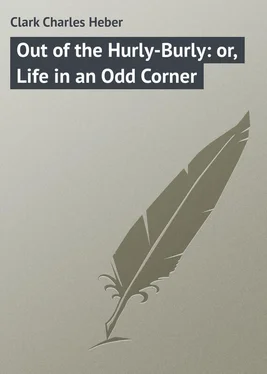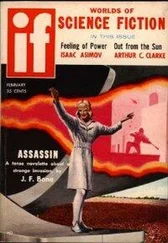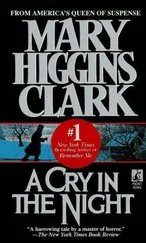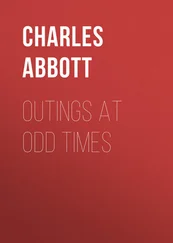Charles Clark - Out of the Hurly-Burly - or, Life in an Odd Corner
Здесь есть возможность читать онлайн «Charles Clark - Out of the Hurly-Burly - or, Life in an Odd Corner» — ознакомительный отрывок электронной книги совершенно бесплатно, а после прочтения отрывка купить полную версию. В некоторых случаях можно слушать аудио, скачать через торрент в формате fb2 и присутствует краткое содержание. ISBN: , Жанр: foreign_prose, foreign_humor, на английском языке. Описание произведения, (предисловие) а так же отзывы посетителей доступны на портале библиотеки ЛибКат.
- Название:Out of the Hurly-Burly: or, Life in an Odd Corner
- Автор:
- Жанр:
- Год:неизвестен
- ISBN:http://www.gutenberg.org/ebooks/42190
- Рейтинг книги:5 / 5. Голосов: 1
-
Избранное:Добавить в избранное
- Отзывы:
-
Ваша оценка:
- 100
- 1
- 2
- 3
- 4
- 5
Out of the Hurly-Burly: or, Life in an Odd Corner: краткое содержание, описание и аннотация
Предлагаем к чтению аннотацию, описание, краткое содержание или предисловие (зависит от того, что написал сам автор книги «Out of the Hurly-Burly: or, Life in an Odd Corner»). Если вы не нашли необходимую информацию о книге — напишите в комментариях, мы постараемся отыскать её.
Out of the Hurly-Burly: or, Life in an Odd Corner — читать онлайн ознакомительный отрывок
Ниже представлен текст книги, разбитый по страницам. Система сохранения места последней прочитанной страницы, позволяет с удобством читать онлайн бесплатно книгу «Out of the Hurly-Burly: or, Life in an Odd Corner», без необходимости каждый раз заново искать на чём Вы остановились. Поставьте закладку, и сможете в любой момент перейти на страницу, на которой закончили чтение.
Интервал:
Закладка:
He brought me a splendid present in the shape of an American agave, or century plant. It was offered to him in Philadelphia by a man who brought it to the store and wanted to sell it. The man said it had belonged to his grandfather, and he consented to part with it only because he was in extreme poverty. The man informed Bob that the plant grew but half an inch in twenty years, and blossomed but once in a century. The last time it bloomed, according to the information obtained from the gray-haired grandsire of the man, was in 1776, and it would therefore certainly burst out again in 1876. Patriotism and a desire to have such a curiosity in the family combined to induce Mr. Parker to purchase it at the price of fifty dollars.
I planted the phenomenon on the south side of the house, against the wall. Two days afterward I called Bob's attention to the circumstance that the agave had grown nearly three feet since it was placed in the ground. This seemed somewhat strange after what the man said about the growth of half an inch in two decades. But we concluded that the surprising development must be due to the extraordinary fertility of the soil, and Bob exulted as he thought how he had beaten the man by getting a century plant so much larger and so much more valuable than he had supposed. Bob said that the man would be wofully mad if he should call and see that century plant of his grandfather's getting up out of the ground so splendidly.
That afternoon we all went down to Cape May, and for two weeks we remained there. Upon our return, Bob remarked, as we stepped from the boat, that he wanted to go around the first thing and see how the plant was coming on. He suggested gloomily that he should be bitterly disappointed if it had perished from neglect during our absence.
But it was not dead. We saw it as soon as we came near the house. It had grown since our departure. It had a trunk as thick as my leg, and the branches ran completely over three sides of the house; over the window shutters, which were closed so tightly that we had to chop the century plant away with a hatchet; over the roof, down the chimneys, which were so filled with foliage that they wouldn't draw; and over the grapevine arbor, in such a fashion that we had to cut away vines and all to get rid of the intruder.
The roots, also, had thrown out shoots over every available square foot of the yard, so that I had eight or ten thousand century plants in an exceedingly thriving condition, while a branch had grown through the open cellar window, and was getting along so finely that we could only reach the coal-bin by tramping through a kind of an East Indian jungle.
Mr. Parker, after examining the vegetable carefully, observed:
"I'm kind of sorry I bought that century plant, Max. I have half an idea that the man who sold it to me was a humorist, and that his Revolutionary grandfather was an octogenarian fraud."
If anybody wants a good, strong, healthy century plant that will stand any climate, and that is warranted to bloom in 1876, mine can be had for a very reasonable price. This may be regarded as an unparalleled opportunity for any young agriculturist who does not want to wait long for his vegetables to grow.
CHAPTER IV
My next-door neighbor upon the west is Judge Pitman. I heard his name mentioned before I became acquainted with him, and I fancied that he was either a present occupant of the bench, or else that he had gone into retirement after spending his active life in dispensing justice and unraveling the tangles of the law. But it appears that he has never occupied a judicial position, and that his title is purely complimentary, having no relation whatever to the nature of his pursuits either in the past or in the present. The judge, indeed, is merely the owner of a couple of steam-tugs and one or two wood sloops which ply upon the river and upon Chesapeake Bay. He spends most of his time at home, living comfortably upon the receipts of a business which is conducted by his hired men, and perhaps also upon the interest of a few good investments in this and other places.
A very brief acquaintance with the judge suffices to convince any one that he has never presided in court. He is a rough, uneducated man, with small respect for grammar, an irrepressible tendency to distort the language, and very little information concerning subjects which are not made familiar by the occurrences of every-day life. But he is hearty, genial, sincere and honest, and I very soon learned to like him and to find amusement in his quaint simplicity.
My first interview with the judge was somewhat remarkable. I came home early one afternoon for the purpose of training some roses and clematis against my fence. While I was busily engaged with the work, the judge, who had been digging potatoes in his garden, stuck his spade in the earth and came to the fence. After looking at me in silence for a few moments, he observed,
"Fine day, cap!"
The judge has the habit of conferring titles promiscuously and without provocation, particularly upon strangers. To call me "cap." was his method of expressing a desire for sociability.
"It is a beautiful day," I observed, "but the country needs rain."
"It never makes no difference to me," replied the judge, "what kinder weather there is; I'm allers satisfied. 'Twon't rain no sooner for wishin' for it."
As there was no possibility of our having a controversy upon this point, I merely replied, "That is true."
"How's yer pertaters comin' on?" inquired the judge.
"Very well, I believe. They're a little late, but they appear to be thriving."
"Mine's doin' first rate," returned the judge. "I guannered them in the spring, and I've bin a-hoein' at 'em and keepin' the weeds down putty stiddy ever since. Mons'ous sight o' labor growin' good pertaters, cap."
"I should think so," I rejoined, "although I haven't had much practical experience in that direction thus far."
"Cap.," observed the judge, after a brief interval of silence, "you're one of them fellers that writes for the papers and magazines, a'n't you?"
"Yes, I sometimes do work of that kind."
"Well, see here: I've got somethin' on my mind that's bin a-botherin' me the wust kind for a week and more. You've read the 'Atlantic Monthly,' haven't you?"
"Yes."
"Well, my daughter bought one of 'em, and I was a-readin' it the other night, when I saw it stated that guanner could be influenced by music, and that Professor Brown had made some git up and come to him when he played a tune on the pianner."
I remembered, as the judge spoke, that the magazine in question did contain a paragraph to the effect that the iguana was susceptible of such influence, and that Mrs. Brown had succeeded in taming one of these animals, so that it would run to her at the sound of music. But I permitted Mr. Pitman to continue without interruption.
"Of course," said he, "I never really believed no such nonsense as that, but it struck me as kinder sing'lar, and I thought I'd give the old thing a trial, anyhow. So I got down my fiddle and went to the barn, and put a bag of guanner in the middle of the floor and begun to rake out a tune. First I played 'A Life on the Ocean Wave and a Home on the Rollin' Deep' three or four times; and there that guanner sot, just as I expected 'twould. Then I begun agin and sawed out a lot o' variations, but still she didn't budge. Then I put on a fresh spurt and jammed in a passel o' extra sharps and flats and exercises; and I played that tune backward and sideways and cat-a-cornered. And I stirred in some scales, and mixed the tune up with Old Hundred and Mary Blaine and some Sunday-school songs, until I nearly fiddled my shirt off, and nary time did that guanner bag git up off o' that floor. I knowed it wouldn't. I knowed that feller wa'n't tellin' the truth. But, cap., don't it strike you that a man who'd lie like that ought to have somethin' done to him? It 'pears to me 's if a month or two in jail'd do that feller good."
Читать дальшеИнтервал:
Закладка:
Похожие книги на «Out of the Hurly-Burly: or, Life in an Odd Corner»
Представляем Вашему вниманию похожие книги на «Out of the Hurly-Burly: or, Life in an Odd Corner» списком для выбора. Мы отобрали схожую по названию и смыслу литературу в надежде предоставить читателям больше вариантов отыскать новые, интересные, ещё непрочитанные произведения.
Обсуждение, отзывы о книге «Out of the Hurly-Burly: or, Life in an Odd Corner» и просто собственные мнения читателей. Оставьте ваши комментарии, напишите, что Вы думаете о произведении, его смысле или главных героях. Укажите что конкретно понравилось, а что нет, и почему Вы так считаете.












